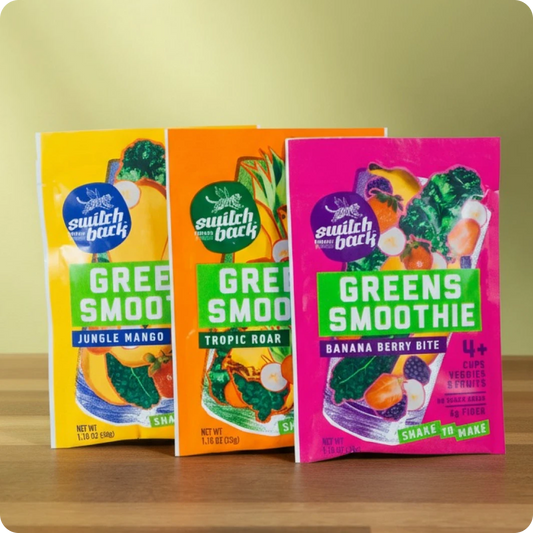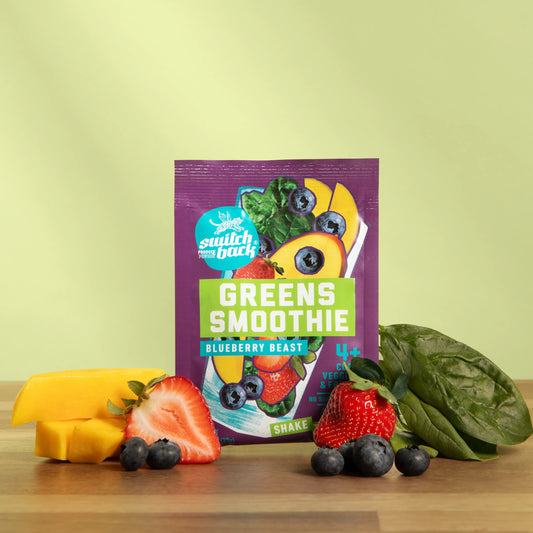
Benefits of Fiber
Fiber is essential for long term health, preventing heart disease and helping you stay fuller longer. Many people turn to fiber supplements for increasing their fiber consumption, however these supplements are often not correlated to reduction of heart disease, lower cholesterol, and increased life expectancy. Processed foods are not a reliable source of fiber within a balanced diet.
A healthy diet consists of fruits and vegetables, whole grains, nuts, which are all high fiber foods. High fiber foods are not as difficult to find as they are often right in front of us! To increase your dietary fiber intake, look to the outer portion of the store and find more fruits and vegetables, nuts, and whole grains. ‘
You may be noticing a theme, most processed foods do not contain natural, or significant quantities of fiber. A high fiber diet cannot be made up of fiber supplements as you will be missing out on more than the dietary fiber found in foods. When you consume a high fiber diet, you are not only getting the health benefits of fiber but you are also getting the nutrient density that those foods deliver that cannot be found except in fortified foods.
Types of Fiber: Soluble and Insoluble Fiber
Soluble fiber is one of the core components in our digestive system and gut health. It plays a significant role in keeping your digestive track running smoothly (think regular poops!). Unlike insoluble fiber, its counterpart, soluble fiber dissolves in water, forming a gel like substance in digestion. This gel is the superhero in your digestive tract. It slows down digestion (which aids in weight loss), keeps you fuller for longer, and prevents blood sugar spikes.
By binding itself to cholesterol, it helps lower the risk of heart disease as well. Soluble fiber is also well know to help regulate bowel movements, relieving chronic constipation and keeping you regular. To increase fiber intake of soluble fiber, focus on fruits, vegetables, oatmeal and beans. For blood sugar control, take on a diet high in fiber today!
Insoluble fiber, the counterpart to soluble fiber plays a significant role in your diet. Insoluble fiber means that it does not dissolve in water, rather it adds bulk and structure to your food as it travels through your digestive system and aids in gut health. This type of fiber removes waste helping keep your bowel movements regular and alleviating constipation. Some people like to say it is like a broom in your colon.
Like its twin, soluble fibers, insoluble fibers also help keep you fuller longer which can be wonderful for weight loss. Once again, insoluble fibers are excellent and regulating blood sugar levels and may reduce the risk of colorectal cancer. To have a high fiber intake, focus on whole grains, nuts, and vegetables. While insoluble fiber isn’t absorbed it still has an enormous impact on your overall health.
Health Benefits of Dietary Fiber
Dietary Fiber has been one of the least talked about nutrients for the last 20 years and now it is becoming the hot button macro for a reason. It offers health benefits from improved digestion, weight management, and reduced risk of chronic disease. Ever suffered from a bad case of hemorrhoids? Soluble and insoluble fiber help improve digestion by add bulk to the stool and softening it making it easier to pass which can prevent chronic constipation as well. A major misnomer in the world is that fiber makes it tough to poop, or binds you up, which is the opposite of what fiber actually does! Who doesn’t want to lower their cholesterol levels?
Healthy Weight Loss
Increased dietary fiber may help with weight reduction efforts. In a study from 2009, patients were advised to increase dietary fiber at various intervals and incorporate 90 minutes of exercise per week. Participants lost about twice as much weight as their counterparts who were not eating a diet high in fiber. Recent research has shown high fiber diets help people lose weight, even when not trying to compared to a low fiber diet. A higher fiber intake is correlated to less calories “stored” meaning you can eat the same caloric amount yet your body stores less of it.
Lower Type 2 Diabetes Risk
Fiber does not directly prevent Type 2 diabetes, but that doesn’t mean we should ignore it! A high fiber diet slows down sugar absorption and digestion. Some studies have even shown that soluble fiber may improve insulin sensitivity as well. While fiber is beneficial, and has clear health benefits, it is important to know that a fiber supplement doesn’t show the same clear benefits high fiber foods tend to deliver, so there is no cutting corners.
Lower Odds of Heart Disease
Filling your plate with fiber-rich foods like fruits, vegetables, whole grains, and legumes might just be shredding your risk of cardiovascular disease! Eating a high fiber diet shows a reduced risk of cardiovascular disease in almost every study.
- Soluble fiber soaks up cholesterol lowering cholesterol levels in those with a high fiber diet. Scientifically, this is really cool!
- Blood sugar spikes can have a negative impact on your heart. Once again, fiber slows down the absorption of sugar leading to being kinder to your heart.
- Fiber is natures free prebiotic and nourishes the gut bacteria (stomach) which prevents inflammation and in turn lowers the risk of coronary heart disease.
- Again, it keeps you feeling fuller longer helping to maintain a healthy weight which improves heart health and giving you a decreased risk of developing heart disease.
Fiber Supplements and Fortified Foods
First, taking fiber supplements does show a lower risk of certain chronic illnesses, however not to the extent that high fiber foods do. Fiber supplements and fortified foods are great ways to increase your fiber intake if you are short on time, although a Switchback could be just as fast!
Taking fiber supplements doesn’t produce the same gut bacteria, keep you full, or have as big of an impact on your overall health that a diet rich in fiber provides. Again, these are meant to supplement, not replace eating foods like eating more legumes, grains, whole fruits, vegetables, and nuts.
It is important to prioritize high fiber foods over supplements, however taking a fiber supplement will not cause your body harm! We are proponents of trying to get 30+ grams of fiber in our diet daily Below, we will discuss some of our favorite foods for higher fiber intake!
Is Fiber Good For Me Every Day?
This question arises a lot because of some wild diets in the mid 2000’s where people were having their clients eat over 80 grams of fiber a day! While we aren’t doctors, this amount of fiber for most people is going to be over the top. Having more fiber usually is a great thing, however it is possible to have too much fiber! Surely, it has cross my mind that the more fiber I eat I have a lower risk of developing colorectal cancer, heart disease and more. That may be true to a certain point, however, dietary reference intakes are laid out for a reason.
Diets where people consumer the recommended amounts, or exceed them have been show to have a lower risk of heart disease, lower blood cholesterol, and more. This has been proven by a food company in MN founded by a medical doctor. Her high fiber foods have been proven clinically to reduce high blood pressure, chronic inflammation, and ldl cholesterol! Medically proven foods are rare and her company is the first ever in the food industry to undergo clinical trials!
So, no, you cannot really eat too much fiber in a normal diet! A high intake of fiber is sure to have amazing benefits for you if you are up for it.
Fiber and Stomach Issues
Many times, people will be concerned by increasing their fiber intake that they raise their risk of things like irritable bowel syndrome, gas, and bloating. The benefits of fiber far outweigh the downsides for most people. The biggest benefit of increasing fiber intake is that you improve your gut microbiome naturally, without needing expensive supplements.
Fiber is well know to reduce inflammation in stomachs for anyone! That said, certain fibers can increase the pain and discomfort for people with stomach problems. Most commonly, chicory root is known as a high fiber food and found in many low fiber supplements to increase the amount of fiber. The correlations between chicory root fiber and bloating is well documented and may have the opposite effect people claim!.
It is absolutely safe to increase fiber and it should help quell any stomach and gastrointestinal issues you may be experiencing, but as always please consult a doctor or registered dietician if you have a medical issue you ar elooking to treat.
How Do I Increase My Fiber Intake? Below are some of our favorite fiber rich foods.
First, if you are looking for more fiber, focus on plant foods! Plant foods contain large amounts of fiber without thinking! Two of our favorite plant foods that are both delicious and easy to get are blackberries and raspberries. Both of these contain 8 grams of fiber per cup! That alone may lower the risk of chronic conditions simply having a cup of those a day, not to mention your gut bacteria will be healthier.
Increasing fiber intake is something that many of us strive to do, but yet we struggle with! How much fiber is recommended for adults? 25 grams of fiber for women and 38 grams of dietary fiber for men are suggested. Right now, due to ultra processed foods, the average american eats less than 15 grams of dietary fiber per day! Yikes!
It is important to know that while both soluble and insoluble fibers are important, do not get hung up on one verse the other. Start my incorporating more high fiber foods into your diet, or at worst increase with fiber supplements. If you are struggling to get enough fiber, here are a few of our favorite foods with high fiber content.
Switchback Smoothies: They contain between 4-6 grams of dietary fibers per serving.
Wasa Crackers: The whole grain version has 3-4 grams of fiber per serving.
Popcorn: Surprisingly, popc
orn is an excellent source of fiber for those that may be vegetable and fruit averse.
Innkeepers Multi Grain Bread from Costco: This bread is packed with dietary fibers! Each slice contains a whopping 6 grams of fiber - all natural!
Closing
Fiber is the ninja that your body needs and it is found in plant foods which have different types of fiber. Whether you are looking to simply make a healthy change, or are looking to increase your fiber intake, it is important to know that fiber is incredibly important and is a nutrient your body needs and deserves. Look closely at nutrition panels to understand where the fiber comes from and if you are getting fiber that is beneficial for your body. Not all dietary fiber is created equal and it is crucial to prioritize fiber from plants and whole foods, not supplements, in order to stave off things like heart disease, high cholesterol, and more!




